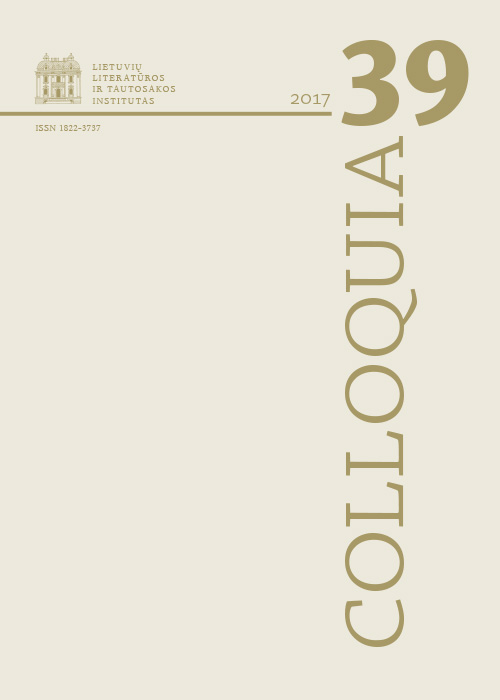Demoniškumo samprata Herkaus Kunčiaus apysakoje Ištikimiausias metafizinis draugas ir Mariaus Ivaškevičiaus dramoje Mistras
Santrauka
Straipsnis literatūros teologijos žvilgsniu tyrinėja demoniškumo sampratą dviejuose šiuolaikinės lietuvių literatūros kūriniuose: Herkaus Kunčiaus apysakoje Ištikimiausias metafizinis draugas (2002) ir Mariaus Ivaškevičiaus dramoje Mistras (2010). Abiejų kūrinių kontekstas yra (pre)romantizmo pasaulėvoka, jos polinkis į misticizmą, domėjimasis dvasių pasauliu. Abu kūriniai demoniškus personažus sieja su archetipine J. W. Goethe’s Mefistofelio figūra. Kunčiaus apysakoje demoniškumas yra liguistos personažo psichikos pasaulis, autoriaus nihilistiškai traktuojamas kaip nepagydoma psichinė liga. Ivaškevičiaus dramos Mistras, demoniško personažo paveikslą postmoderniai dėstančios iš perversiškų pornografijos ir smurto vaizdų, pasaulėvaizdis yra agnostinis, klausimą apie metafizinę demoniškumo kilmę paliekantis atvirą. Pagrindinė Mistro interpretuojamo demoniškumo prasmė – politinio pavergimo demoniškumas: drama savitai varijuoja lietuvių literatūrai būdingą politinės agresijos ir demoniškumo temų sampyną.
Atsisiuntimai
Skaitomiausi šio autoriaus(ų) straipsniai
- Dalia Čiočytė, Senosios baltų tikybos „krikštijimas“ Kazio Bradūno lyrikoje , Colloquia: T 38 (2017)
